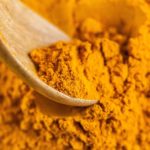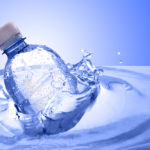By David Blyweiss, M.D., Advanced Natural Wellness
March 14, 2018
- Depression: It’s not a chemical imbalance
- What REALLY causes depression?
- Is inflammation giving you the blues?
Antidepressant drugs are supposed to work by fixing a “chemical imbalance” in the brain. Some of them increase serotonin. Some lower it. Others have no effect on serotonin at all.
So right off the bat you have to wonder how they can all show a therapeutic benefit against depression.
Well, there is a reason for this.
It turns out that all antidepressants have one thing in common: About 82% of the positive results associated with them are attributed to the placebo effect.
With these abysmal facts at hand, you have to wonder how antidepressants ever got approved for treatment. And the answer is surprisingly simple.
The FDA only requires two studies showing a significant difference in results between a drug and placebo. But that doesn’t mean the drug makers only perform two studies. They keep producing study after study (and study after study) until they finally achieve two that show the results they want.
Then they sweep all of the failed trials under the rug. Only those with positive findings make it to the FDA for approval.
Open your arteries, improve blood flow for a new health miracle...
Did you know your circulatory system has over 60,000 miles of arteries, veins and other blood vessels, if stretched end to end?
But as you age, your blood vessels undergo changes, which may cause them to stiffen, thicken and get clogged.
GOOD NEWS! Doctors have now identified a “Miracle Molecule” inside your arteries that helps OPEN your arteries and IMPROVE blood flow.
It’s what Dr. Valentin Fuster calls it, "One of the most important discoveries in the history of cardiovascular medicine."To you, that means...
- Healthy blood pressure
- Sharper mind and memory
- Skyrocketing energy and muscular strength
- Increased pleasure and passion in the bedroom
- Improved circulation to every cell and organ in your body
Go here to discover a new natural way to significantly boost the levels of this miracle molecule in YOUR body NOW!
To top it off the drug companies themselves – or scientists with ties to them – conduct most of these studies. As a result, meta-analyses on the studies are tainted. When reviewed by an author or employee of the manufacturer, they are 22 times less likely to have a negative statement about the drug.
What Causes Depression?
Here’s the truth. Depression doesn’t stem from chemical imbalance in the brain. In fact, the serotonin theory has been busted – proven to be wrong over and again.
So if it’s not brain chemicals, what is it?
Foods that mess with your mood. When you indulge in certain foods, they can quickly send you into a depressive state. And unfortunately, some of these food choices are ones that you probably call “comfort foods” – ones that you think will make you feel better.
For example, people who eat croissants, doughnuts, hamburgers, hot dogs and pizza are over 50% more likely to develop depression. Added sugars and refined grains are also associated with increasing odds of depression.
However, when people suffering from major depression receive nutritional counseling about a third of them go into remission. The counseling includes some advice that might sound familiar to you… Fill your diet with fresh fruits, vegetables, beans, nuts, fish and olive oil.
The vitamin deficiency that makes you sad. It’s not uncommon for people who suffer from depression to have low vitamin D levels. In fact, people with the lowest levels are at more than double risk of depression compared to those with the highest levels.
Since vitamin D deficiency is very common here in the U.S., I recommend vitamin D testing for everyone – especially if they suffer from depression. Your goal should be to bring your levels up to 40 ng/ml or higher.
Stressing your way to depression. If you are under constant stress, you could be reducing the size of your hippocampus. And oddly enough, a smaller hippocampus is linked to depressive symptoms.
Are You Suffering From...
- Love handles and a pot belly
- Romance that isn't what it used to
- Forgetfulness and inattention
- Low (or no) strength and endurance
- A sex drive that's shifted into neutral...or worse
If so...you may have Mature Male Burnout. Click here to discover more about this unique condition and what you can do about it.
Here’s how it works: Stress prevents the development of new neurons in the hippocampus. This, in turn, reduces volume and impairs communication pathways in your brain that may impact feelings and emotions.
Stress also reduces brain-derived neurotrophic factor (BDNF), which is necessary for neuron survival and other brain functions.
One of the best stress reducers of all time is participating in regular physical activity. But it doesn’t just reduce stress. It also boosts hippocampal volume and increases the production of BDNF – encouraging the growth of new neurons and enhanced synaptic activity.
As a result, regular exercise may be a top contender when it comes to battling depression. So even if you don’t feel like moving today, make the effort to attend some sort of program that promotes physical activity. It could make all of the difference in the world.
Is Inflammation giving you the Blues?
More and more evidence shows that persistent inflammation is common in patients with major depressive disorder. This type of low-grade inflammation interferes with brain circuitry and neurotransmitters that affect can easily affect the way you think.
Because inflammation is such a big problem in our modern-day world, I always suggest getting more omega-3 fatty acids in your diet via supplementation or fish. These fatty acids are excellent at downregulating inflammation.
I also recommend two specific herbs to slash inflammation.
The first is curcumin. It’s a powerful anti-inflammatory herb that works wonders on depression. However, unlike antidepressant drugs, the effect of curcumin on depressive symptoms is significantly greater than placebo. Just 500 mg daily for eight weeks can make a big difference among people with major depressive disorder.
The other herb is ashwagandha. Depressed people who take 300 mg of this inflammation fighting herb daily for only two months show a 77% improvement in depressive scores, 75% improvement in anxiety and 64% improvement in stress.
Depression is a serious issue and should not be taken lightly. Take a look at your food choices, nutrient levels and exercise habits. Change them if necessary.
But if you still need help, please don’t resort to antidepressant drugs associated with ideations of suicide, weight gain, stroke, death and addiction. Instead, visit a therapist who can genuinely help you develop a game plan to deal with your problems.
SOURCES:
Kirsch I. Antidepressants and the Placebo Effect. Z Psychol. 2014; 222(3): 128–134.
Ebrahim S, et al. Meta-analyses with industry involvement are massively published and report no caveats for antidepressants. J Clin Epidemiol. 2016 Feb;70:155-63.
Plataforma SINC. “Link between fast food and depression confirmed.” ScienceDaily. ScienceDaily, 30 March 2012.
Gangwisch JE, et al. High glycemic index diet as a risk factor for depression: analyses from the Women’s Health Initiative. Am J Clin Nutr. 2015 Aug;102(2):454-63.
Jacka FN, et al. A randomised controlled trial of dietary improvement for adults with major depression (the ‘SMILES’ trial). BMC Med. 2017 Jan 30;15(1):23.
Anglin RE, et al. Vitamin D deficiency and depression in adults: systematic review and meta-analysis. Br J Psychiatry. 2013 Feb;202:100-7.
MacQueen G, et al. The hippocampus in major depression: evidence for the convergence of the bench and bedside in psychiatric research? Mol Psychiatry. 2011 Mar;16(3):252-64.
Gomez-Pinilla F, et al. The Influence of Exercise on Cognitive Abilities. Compr Physiol. 2013 Jan; 3(1): 403–428.
Miller AH, et al. The role of inflammation in depression: from evolutionary imperative to modern treatment target. Nat Rev Immunol. 2016 Jan; 16(1): 22–34.
Lopresti AL, et al. Curcumin for the treatment of major depression: a randomised, double-blind, placebo controlled study. J Affect Disord. 2014;167:368-75.
Chandrasekhar K, et al. A Prospective, Randomized Double-Blind, Placebo-Controlled Study of Safety and Efficacy of a High-Concentration Full-Spectrum Extract of Ashwagandha Root in Reducing Stress and Anxiety in Adults. Indian J Psychol Med. 2012 Jul-Sep; 34(3): 255–262.








I agree totally with your article…. Whats sad is that I didn’t figure this out until about two years ago. — Now that I have been on Effexor 150mg for 20 years and have not been able to get off of them. Any suggestions would be greatly appreciated. — I’ve tried almost everything I know.
Sincerely
Wm. E. Parks